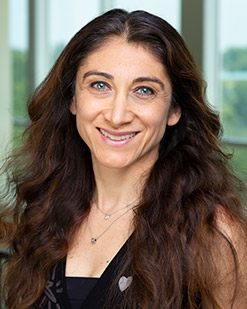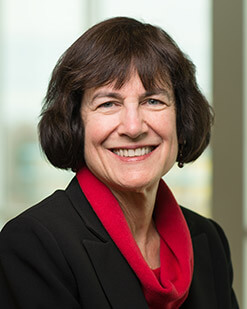Cystic Fibrosis (CF)
This information was reviewed and approved by Sara Brayshaw, RN, MSN (9/30/2019).
What is Cystic Fibrosis?
Cystic fibrosis (CF) is a genetic disease that primarily affects the lungs and digestive system. About 30,000 children and adults in the United States, and more than 70,000 worldwide, have CF.
CF is a progressive disease. It gets worse over time. CF causes persistent lung infections and makes it difficult to breathe. People with cystic fibrosis have a defective gene that makes the body create thicker and stickier mucus. This mucus builds up in the lungs and pancreas. It is hard to cough mucus out of the lungs. The mucus can make breathing difficult and lead to severe lung infections. It also blocks ducts in the pancreas, which causes problems with digesting food and absorbing nutrients.
Cystic fibrosis is caused by a mutation in the cystic fibrosis transmembrane conductance regulator (CFTR) gene. This mutation results in a faulty ion channel that prevents chloride and other ions from exiting cells in the lungs and other organs. Ion channels are proteins in a cell’s membrane that create small openings for ions to pass through. Ion channels are like narrow, water-filled tunnels that help pass signals in the nervous system.
When the CFTR gene is not working correctly, it can’t transport salt and water across cells. This creates unusually thick, dehydrated and sticky mucus in many tissues of the body, including the airways, pancreatic ducts, sweat ducts, sinuses and bowels. When ducts in the pancreas are blocked, it decreases the organ’s ability to make the enzymes required to digest proteins and fat.
Individuals with CF are typically diagnosed during newborn screening. Cystic fibrosis symptoms in infants can include diarrhea and malnutrition. Obstruction of the lung’s small airways results in the permanent enlargement of these bronchi, called bronchiectasis. This makes a place where certain infections can take hold. Thick and dehydrated mucus prevents the normal clearance of bacteria and other microbes from the lungs. Chronic infections often occur.
The most important complication of CF is progressive destruction of the lungs. This causes respiratory failure and death in approximately 80 percent of CF patients. Fortunately, steady advances in medical treatments for cystic fibrosis have provided a range of therapies to slow or prevent complications. New therapies have improved quality of life and extended the lifespan of children and adults.
How Common Is Cystic Fibrosis?
There are about 30,000 people with CF in the United States, and more than 70,000 people worldwide. Between 800 to 1,200 new cases are diagnosed each year in the United States alone (about 1 out of every 3,500 newborns) [2].
Cystic fibrosis (CF) is a genetic disease caused by a mutation in a gene named the cystic fibrosis transmembrane conductance regulator (CFTR). The CFTR mutation is extraordinarily common in the general population, with approximately 10-12 million carriers in the United States. Worldwide, prevalence of the CFTR mutation varies greatly between ethnic groups, with the greatest frequency in European-derived populations and Ashkenazi Jews. Estimates of carrier rates and disease prevalence in the United States are listed in below. In some regions of Europe, an even greater carrier rate has been reported.
Estimated Prevalence of CFTR Mutations and new cases of Cystic Fibrosis in the United States
| Ethnicity | Carrier rate | Newborns with CF |
| Caucasian Americans | 1 in 29 | 1 in 3,200 |
| Hispanic Americans | 1 in 46 | 1 in 8,500 |
| African Americans | 1 in 65 | 1 in 17,000 |
| Asian Americans | 1 in 90 | 1 in 31,000 |
| Overall US population | 1 in 31 | 1 in 3,500 |
Many scientists have questioned why the CFTR mutation is so common in select ethnic groups. Geneticists have determined that the important F508del mutation of the CFTR gene has been present in the human gene pool for over 50,000 years. As the condition has historically been lethal, it is widely assumed that the carrier state (a single CFTR mutation) must have afforded a survival advantage to certain populations. One clue is that ethnic groups with the highest prevalence of the CFTR mutation are indigenous to cooler climates, such as Ireland, parts of Scandinavia and other European regions. It is known that carriers of CF are predisposed to greater salt loss in their sweat than individuals without the gene. In these climates, salt loss in hot weather would be less relevant, compared to regions of Africa and Asia where the CFTR mutation is much more rare.
Proposed diseases that the CF carrier state may protect against include diarrhea from cholera or lactose intolerance, typhoid fever, high blood pressure and tuberculosis. While these theories have not yet been confirmed in humans, it seems likely that one (or more) of these mechanisms is responsible for keeping the CFTR mutation in the gene pool.
Our Specialists
-

Nicole Borroff, RDN, CLC
-

Erin Brychel, OTR/L
-

Alicia C. Della Volpe, MD
-

Katherine Hisert, MD, PhD
-

Shelby R. Jenkins, OTR
-

Sherstin T. Lommatzsch, MD
-

Steven E. Lommatzsch, MD
-

Robert A. Meguid, MPH, MD
-

Jerry A. Nick, MD
-

Milene Saavedra, MD
-

Jennifer L. Taylor-Cousar, MD, MSCS
-

Chandler Tucker, RDN
-

Pamela L. Zeitlin, MD, MPhil, PhD
 Clinical Trials
Clinical Trials
For more than 100 years, National Jewish Health has been committed to finding new treatments and cures for diseases. Search our clinical trials.
